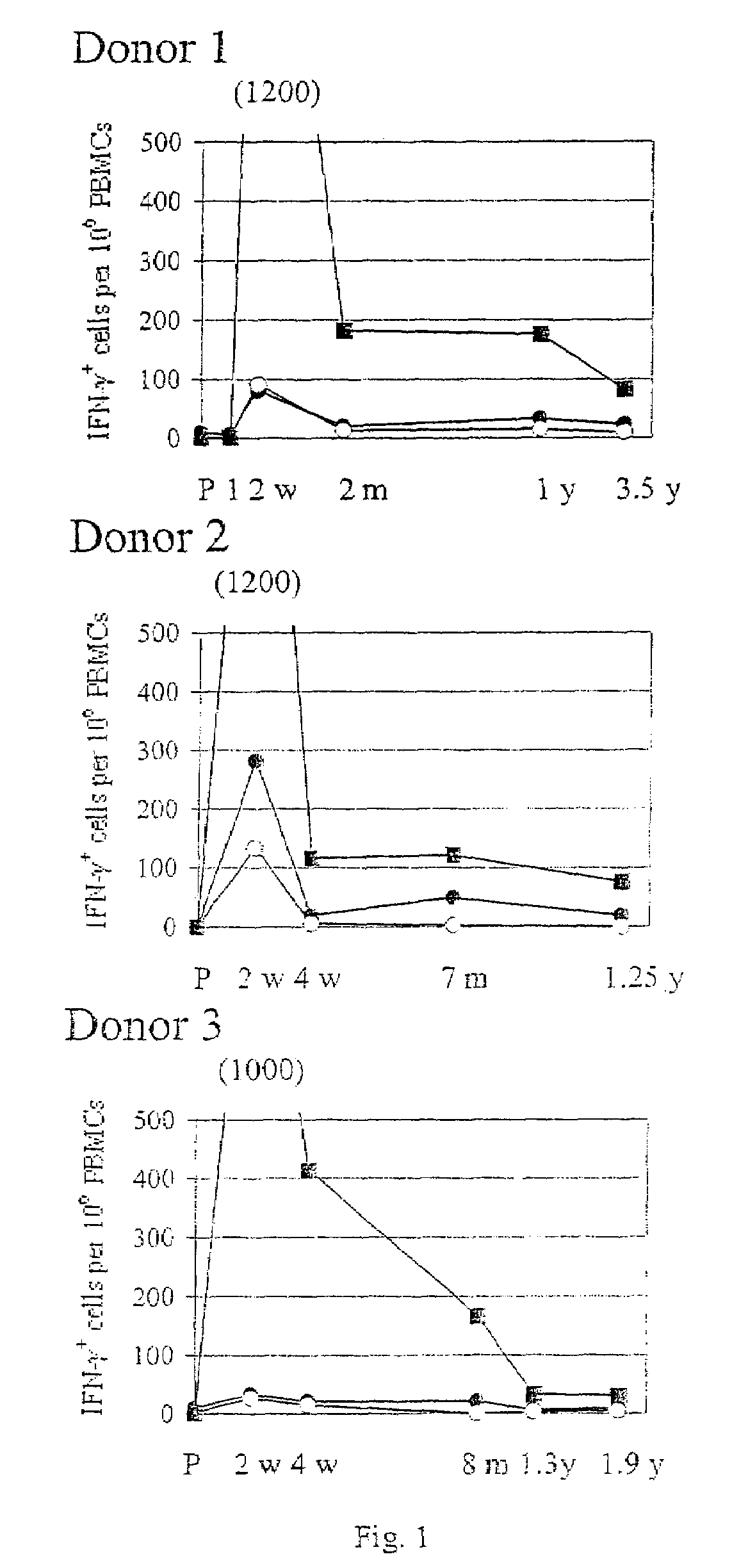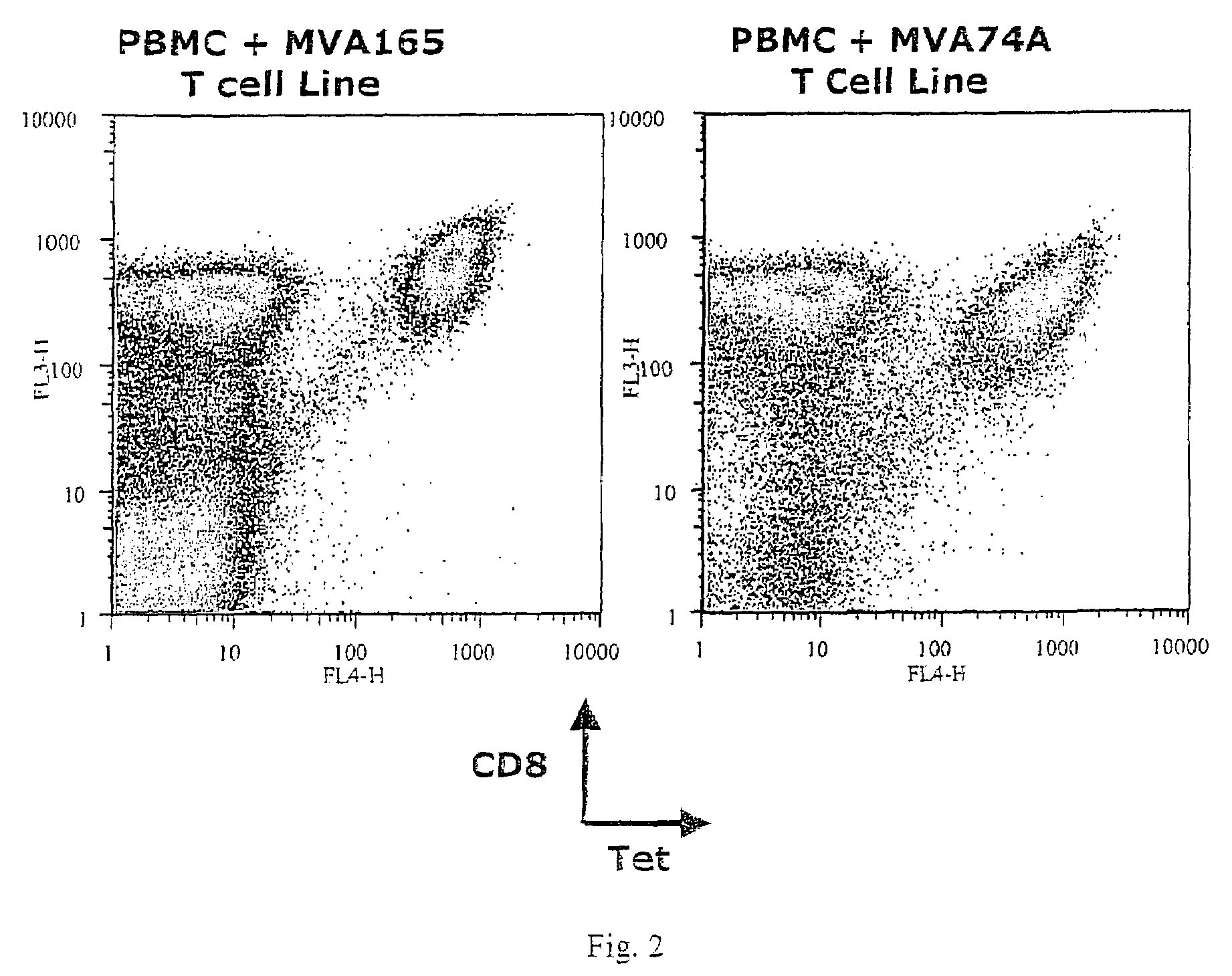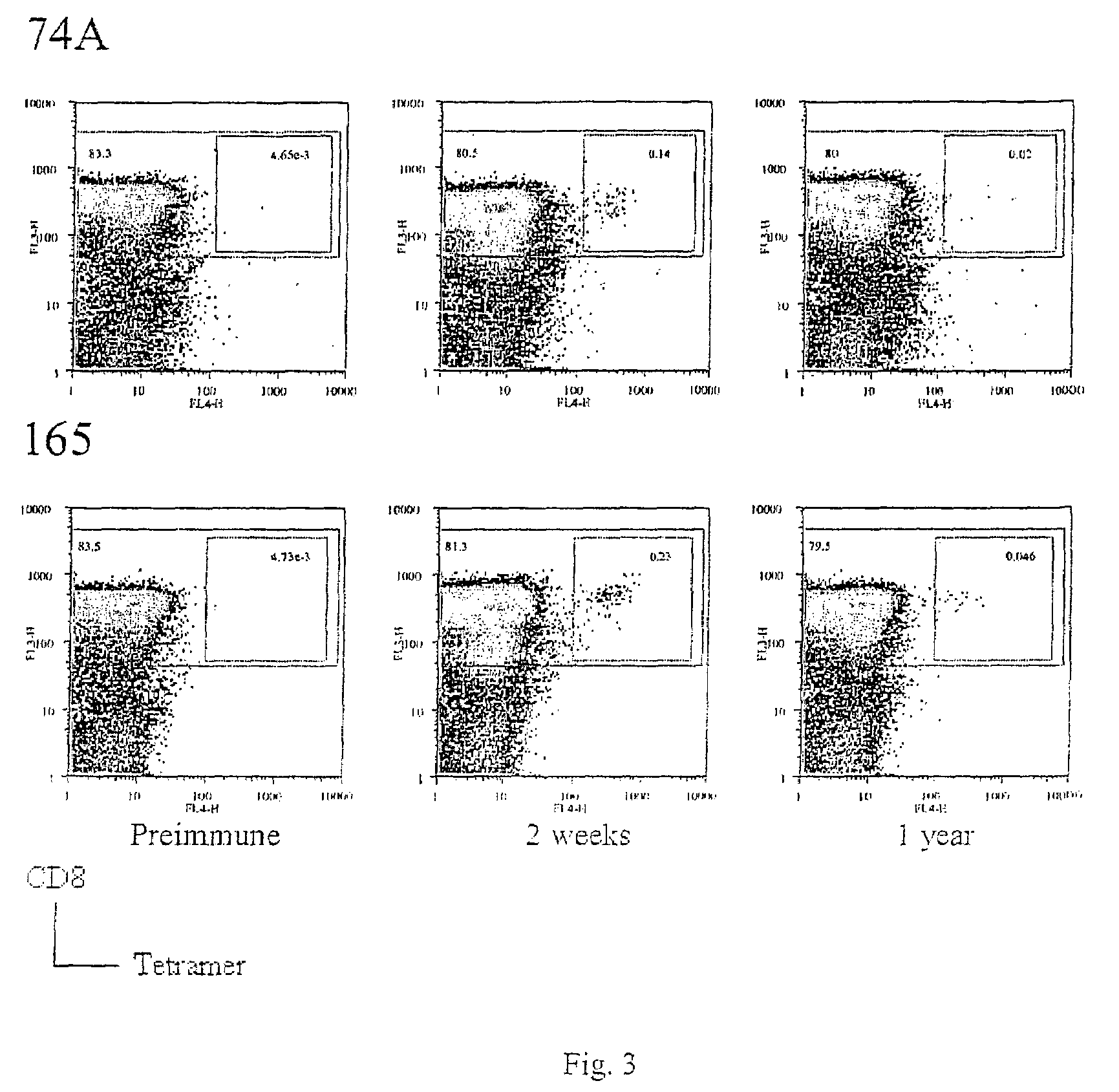Identification of gene sequences and proteins involved in vaccinia virus dominant T cell epitopes
a technology of t cell epitopes and gene sequences, which is applied in the field of identification of gene sequences and proteins involved in the dominant t cell epitopes of vaccinia virus, can solve the problems of no t cell epitopes have been identified in humans or mice systems, severe and life-threatening complications of vaccination, and virus siz
- Summary
- Abstract
- Description
- Claims
- Application Information
AI Technical Summary
Benefits of technology
Problems solved by technology
Method used
Image
Examples
Embodiment Construction
[0019]A description of preferred embodiments of the invention follows.
[0020]Successful vaccines deliver to a host one or more antigens derived from a pathogen, thereby stimulating an immune response which protects against subsequent challenge with the pathogen. Such vaccines can take a variety of forms, including attenuated or killed pathogens, for example, viruses or bacteria; one or more proteins or peptides derived from a pathogen or synthetic or recombinant versions of such proteins or peptides; or one or more nucleic acid molecules encoding one or more proteins or peptides from the pathogen, such as a naked DNA vaccine or a nucleic acid molecule administered in a suitable vector, such as a recombinant virus or bacterium or an immunostimulating complex. Vaccines against cell proliferative diseases, such as cancers, typically utilize proteins or fragments thereof, or nucleic acid molecules encoding proteins or fragments thereof, which are unique to diseased cells or generally mor...
PUM
| Property | Measurement | Unit |
|---|---|---|
| time | aaaaa | aaaaa |
| concentration | aaaaa | aaaaa |
| concentration | aaaaa | aaaaa |
Abstract
Description
Claims
Application Information
 Login to View More
Login to View More - R&D
- Intellectual Property
- Life Sciences
- Materials
- Tech Scout
- Unparalleled Data Quality
- Higher Quality Content
- 60% Fewer Hallucinations
Browse by: Latest US Patents, China's latest patents, Technical Efficacy Thesaurus, Application Domain, Technology Topic, Popular Technical Reports.
© 2025 PatSnap. All rights reserved.Legal|Privacy policy|Modern Slavery Act Transparency Statement|Sitemap|About US| Contact US: help@patsnap.com



